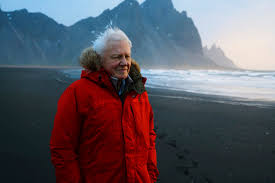 When the time came to move we knew we needed to add loose coffee to our range. So, we went and did some homework.
When the time came to move we knew we needed to add loose coffee to our range. So, we went and did some homework.Our first instinct was to find a local brand we could support. Obviously, even us coffee neophytes knew that not a lot of people try to grow coffee beans in rural Wales, but, there are a number of roasters local to us and that seemed a good place to start. We spoke to a few people, had a couple of small scale roasters visit and still we couldn't seem to quite find what we were looking for. This may well have been more about our lack of knowledge than those we chatted with. It's hard to give someone what they want when they have no more than a vague idea of what 'it' actually is.
And then we came across Heartland Coffee. Based in Llandudno, they were knowledgeable and building up a great reputation. When we spoke with them, they oozed a certain type of passion for their product that we found irresistible. And then we found out how they work with individual coffee growers, often buying up the whole years supply from single farmers to create great 1-2-1 relationships and unique coffees. This was most definitely what we had been searching for. We wanted to know the stories behind the coffee and have confidence in a sustainable, equitable, supply chain. We felt we'd hit the jackpot.
 Fast forward a few weeks and we were pulling a ridiculous, 36 hour straight shift to get the shop ready to open a mere 24 hours late. We got to the filling the coffee jars at about 3am, opened up the big bag of Rwandan Cocatu beans and WOMPH! There was another hour worth of energy just from the smell. It was rich, dark, chocolatey, gorgeous. We didn't need to drink it, the aroma told us everything.
Fast forward a few weeks and we were pulling a ridiculous, 36 hour straight shift to get the shop ready to open a mere 24 hours late. We got to the filling the coffee jars at about 3am, opened up the big bag of Rwandan Cocatu beans and WOMPH! There was another hour worth of energy just from the smell. It was rich, dark, chocolatey, gorgeous. We didn't need to drink it, the aroma told us everything.But it wasn't just night shift rocket fuel we were after. We'd spotted something else on our research too...
Originally coffee was grown in the shade of other crops and trees. The shade provided a home for insects and animals, creating a habitat not dissimilar to natural forests. The banana and fruit trees that that provided the cover also gave an additional income for the farmer. Coffee beans had been grown this way for hundreds of years.
All that changed in the 1970's and '80's as international aid produced 'improvements' in agricultural techniques. These changes led to coffee being grown like other crops, a mono culture dependent on sun, fertilisers and pesticides. Great for short term yields, terrible for biodiversity and the environment.
It is, however, possible to buy shade grown coffee. Enter our second coffee brand; Bird & Wild.
 Bird & Wild are dedicated to selling only shade grown, Fairtrade, organic coffee. What's more they work with the RSPB to ensure their beans are grown in a way that provides a natural habitat for migrating birds in the Americas. Once we'd read all that we knew we had the missing piece of our coffee jigsaw.
Bird & Wild are dedicated to selling only shade grown, Fairtrade, organic coffee. What's more they work with the RSPB to ensure their beans are grown in a way that provides a natural habitat for migrating birds in the Americas. Once we'd read all that we knew we had the missing piece of our coffee jigsaw.According to their studies, a single shade grown coffee site can have up to 120 species of plant and 13 to 58 varieties of tree. One location in Mexico recorded 609 types of insects. A study in Guatemala found birds were 30% more abundant and diverse on shade grown plantations compared to sun grown mono cultures.This is a simple product choice that can make a real difference. Another of those magical 'little changes' we talk about so often.
So there you have it, our blend of local and ethical coffees, giving you great choice, amazing taste and a way to make the world a better place. Time to put the kettle on I think...



